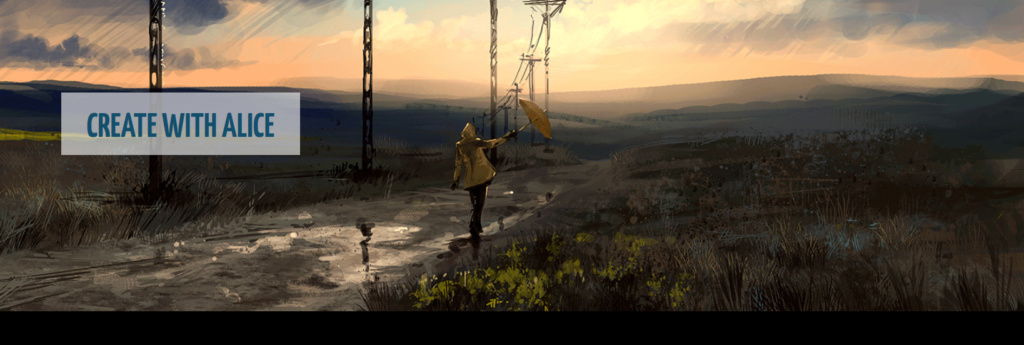
Inanimate Alice is a perfect out of school resource. It works so well, not just for students but for all teachers and parents working from home right now, trying to make sense of a rapidly changing and uncertain world.
I have spent hours following Alice and her nomadic family around China, Italy, Russia and the UK. Along the way I have been aware of parallels between their lives and the world we live in right now. We are cut off from all that is familiar and comforting, reliant on technology and isolated in a way we have never been before.
Since the advent of the internet and multimedia our information is no longer presented in a straight linear fashion. Nor is it primarily reliant on the printed word. Inanimate Alice mirrors that change. It a digital novel which has proved popular with some teachers and researchers interested in the 'new literacies'.
There have been several experiments with the novel form and Inanimate Alice is one of the most longstanding and complex.
Episode 1 of Inanimate Alice was released in 2005 and the story is not yet finished. Wikipedia gives one of the most succinct overviews. 'Inanimate Alice is an ongoing digital novel, an interactive multimodal fiction, relating the experiences of aspiring game designer Alice Field and her imaginary digital friend, Brad, in episodes, journals, social media, and virtual reality… The planned story arc embraces 10 episodes spanning Alice's life from age 8 through to her mid-twenties as she realizes her dream of becoming a game designer.'
The opening storyline shows Alice, a young mixed race child, living in a yurt in a remote area of northern China. Her father works in the petroleum industry and goes missing so Alice and her mother set out to find him.